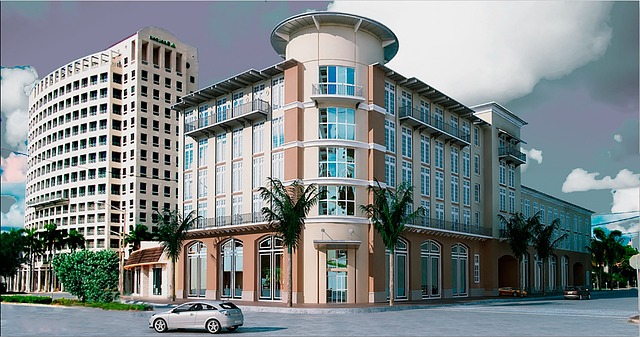Singapore's Upcoming EC 2025 projects position it as a global leader in urban sustainability, focusing on integrating nature into its city fabric. Key initiatives include enhanced public parks and vertical gardens, efficient public transport systems with electric mobility, and advanced waste management and recycling technologies. These projects aim to minimize environmental impact while improving residents' quality of life by 2025, setting a benchmark for eco-friendly urban living worldwide.
Singapore is gearing up for a green revolution with an array of upcoming EC projects aimed at achieving sustainability by 2025. From eco-friendly infrastructure and sustainable transportation to vibrant green spaces and renewable energy sources, the city-state is transforming into an environmental leader. This article delves into these groundbreaking initiatives, exploring how Singapore is setting a global example for future-proof urban development while fostering eco-tourism and engaging its community through education and awareness campaigns. Get ready to discover the exciting roadmap towards a greener Singapore.
- Singapore's Green Initiative: A Preview of EC Projects
- Eco-Friendly Infrastructure: Key Developments for 2025
- Sustainable Transportation: Transforming Mobility
- Green Spaces and Urban Planning: Revitalizing Cityscapes
- Renewable Energy Sources: Powering the Nation Forward
- Waste Management and Recycling Technologies: A Step Towards Zero Waste
- Eco-Tourism Initiatives: Attracting Visitors, Preserving Nature
- Educational Programs and Awareness Campaigns: Engaging the Community
- Future-Proofing Singapore: Long-Term Environmental Strategies
Singapore's Green Initiative: A Preview of EC Projects

Singapore’s commitment to environmental sustainability is evident in its Green Initiative, a vision to create a more eco-friendly and resilient city-state by 2030. This initiative heavily relies on upcoming EC projects, setting a benchmark for urban development worldwide. By 2025, Singapore aims to implement several key strategies, including the expansion of green spaces and sustainable transportation networks.
The focus is on integrating nature into the urban fabric, with plans to enhance public parks, create vertical gardens, and develop eco-friendly buildings. Additionally, Singapore is investing in efficient public transport systems, promoting electric mobility, and encouraging a circular economy. These projects not only address climate change concerns but also aim to improve the overall quality of life for residents, making Singapore a model for sustainable urban living in the upcoming EC 2025.
Eco-Friendly Infrastructure: Key Developments for 2025

Singapore is gearing up for a significant leap forward in eco-friendly infrastructure with several upcoming EC (Environmental Conservation) projects set to revolutionize the nation’s green initiatives by 2025. Key developments include the implementation of smart city technologies that integrate renewable energy sources and efficient waste management systems. The goal is to create sustainable urban environments that minimize environmental impact while enhancing quality of life for residents.
One notable project focuses on transforming public spaces into lush green oases through vertical gardening and smart irrigation systems. Additionally, advanced recycling facilities are being constructed to improve waste segregation and reduce landfill waste. These initiatives align with Singapore’s commitment to becoming a global leader in sustainable development, setting a benchmark for eco-friendly practices within the urban landscape by the target year of 2025.
Sustainable Transportation: Transforming Mobility

Singapore is poised to embrace a greener future with its upcoming EC Projects, particularly in the realm of sustainable transportation. By 2025, the city-state aims to transform mobility through innovative solutions that reduce carbon emissions and promote eco-friendly travel options. The focus is on developing an efficient and interconnected public transport network, encouraging the use of electric vehicles, and integrating smart technologies to optimize traffic flow.
One notable initiative is the expansion of the Mass Rapid Transit (MRT) system with more environmentally friendly trains and stations. Additionally, the government plans to introduce dedicated lanes for electric vehicles, incentivize their adoption among residents, and explore the potential for autonomous shuttles within specific districts. These measures collectively contribute to Singapore’s goal of becoming a sustainable transportation hub, setting an example for urban mobility in the region.
Green Spaces and Urban Planning: Revitalizing Cityscapes

Singapore, renowned for its urban prowess, is gearing up for a green transformation with upcoming EC projects in 2025. The city-state aims to revitalize its cityscapes by seamlessly integrating eco-friendly spaces into its urban fabric. This strategy involves careful planning and design to create sustainable habitats that enhance the well-being of residents while preserving the environment. By focusing on green spaces, these projects promise to breathe new life into urban areas, making them more livable and aesthetically pleasing.
The revitalized city landscapes will not only offer recreational areas for locals but also contribute to a healthier ecosystem. Developers are incorporating eco-friendly materials and energy-efficient technologies in construction, ensuring that these spaces are not just visually appealing but also environmentally sustainable. With an emphasis on biodiversity and natural elements, Singapore is set to become a model for urban planning, showcasing how vibrant cities can coexist harmoniously with nature.
Renewable Energy Sources: Powering the Nation Forward

Singapore’s commitment to a greener future is evident in its ambitious plans for renewable energy sources, aiming to be a global leader in sustainable power by 2030. The country’s upcoming EC projects play a pivotal role in this transformation, with a focus on diversifying energy resources and reducing reliance on fossil fuels. By 2025, Singapore aims to have at least 2 GW of installed solar capacity, integrating photovoltaic (PV) systems into residential, commercial, and industrial buildings.
The nation is also exploring other renewable alternatives, such as offshore wind farms and tidal power, recognizing the potential of its strategic location near rich energy resources. These initiatives align with global trends in the energy sector, where the transition to clean and sustainable sources is accelerating. The Upcoming EC 2025 projects promise to drive Singapore’s journey towards a more environmentally conscious economy, setting an example for other nations to follow.
Waste Management and Recycling Technologies: A Step Towards Zero Waste

Singapore, renowned for its sustainability initiatives, is taking significant strides towards a greener future with upcoming EC projects in 2025. Among these, Waste Management and Recycling Technologies stand out as game-changers in the nation’s journey to achieve zero waste. The focus on advanced recycling solutions promises to revolutionize waste treatment, enabling more efficient resource recovery from domestic and industrial sources.
These innovative technologies aim to minimize the environmental impact of waste by promoting a circular economy model. Through advanced sorting systems and material recovery processes, Singapore can divert a substantial portion of its waste from landfills, reducing greenhouse gas emissions and conserving natural resources. The upcoming projects will also likely foster collaboration among industry players, researchers, and policymakers, creating a sustainable ecosystem that encourages responsible waste generation and efficient recycling practices across the board.
Eco-Tourism Initiatives: Attracting Visitors, Preserving Nature

Singapore is poised to welcome a surge in eco-conscious travellers with its upcoming EC Projects in 2025. These initiatives focus on showcasing the nation’s commitment to environmental preservation while offering visitors unique, sustainable experiences. By integrating nature into the tourist landscape, Singapore aims to attract a new breed of travellers seeking authentic, eco-friendly adventures.
The projects prioritize the conservation of the island state’s rich biodiversity and promote responsible tourism practices. Through the development of green spaces, eco-trails, and educational programmes, visitors will have opportunities to immerse themselves in Singapore’s natural beauty while learning about its ecological importance. These initiatives not only foster a deeper connection with nature but also contribute to the long-term sustainability of the country’s tourism industry.
Educational Programs and Awareness Campaigns: Engaging the Community

Singapore’s upcoming EC (Environmental Conservation) projects in 2025 are set to engage the community through innovative educational programs and awareness campaigns. These initiatives aim to foster a deeper understanding of environmental sustainability among residents, promoting active participation in local conservation efforts. By incorporating interactive workshops, school programs, and public events, these projects seek to inspire behavior changes that contribute to a greener Singapore.
Community involvement is at the heart of these EC 2025 endeavors. Through partnerships with schools, community centers, and volunteer groups, the projects will create a network of engaged citizens who can spread environmental awareness. This collective action is expected to drive positive outcomes, ensuring that Singapore’s ecological initiatives resonate beyond the project sites and leave a lasting impact on the nation’s green future.
Future-Proofing Singapore: Long-Term Environmental Strategies

Singapore, known for its commitment to sustainability, is gearing up for a significant leap forward with its upcoming EC projects in 2025 and beyond. The city-state’s long-term environmental strategies focus on future-proofing the nation through innovative solutions, aiming to reduce carbon emissions, enhance biodiversity, and create a more resilient urban environment. These initiatives are pivotal in addressing climate change challenges while fostering a green economy.
The government has set ambitious goals, including achieving net-zero emissions by 2050. Upcoming EC projects prioritize sustainable transportation, energy-efficient buildings, and the development of green spaces. By integrating cutting-edge technologies and promoting circular economy principles, Singapore aims to become a global leader in environmental innovation. This forward-thinking approach ensures that the nation remains competitive while safeguarding its natural resources for future generations.
